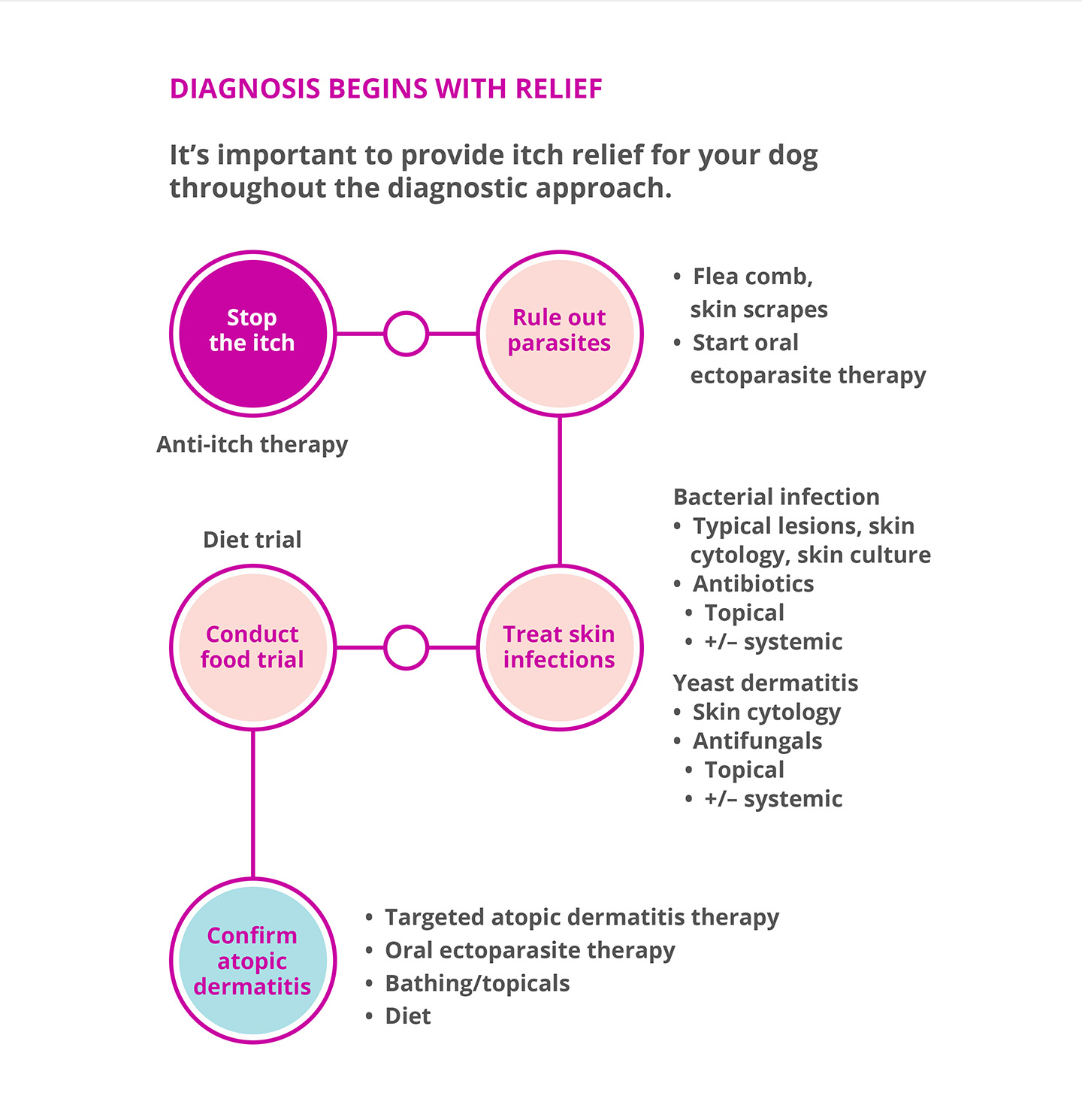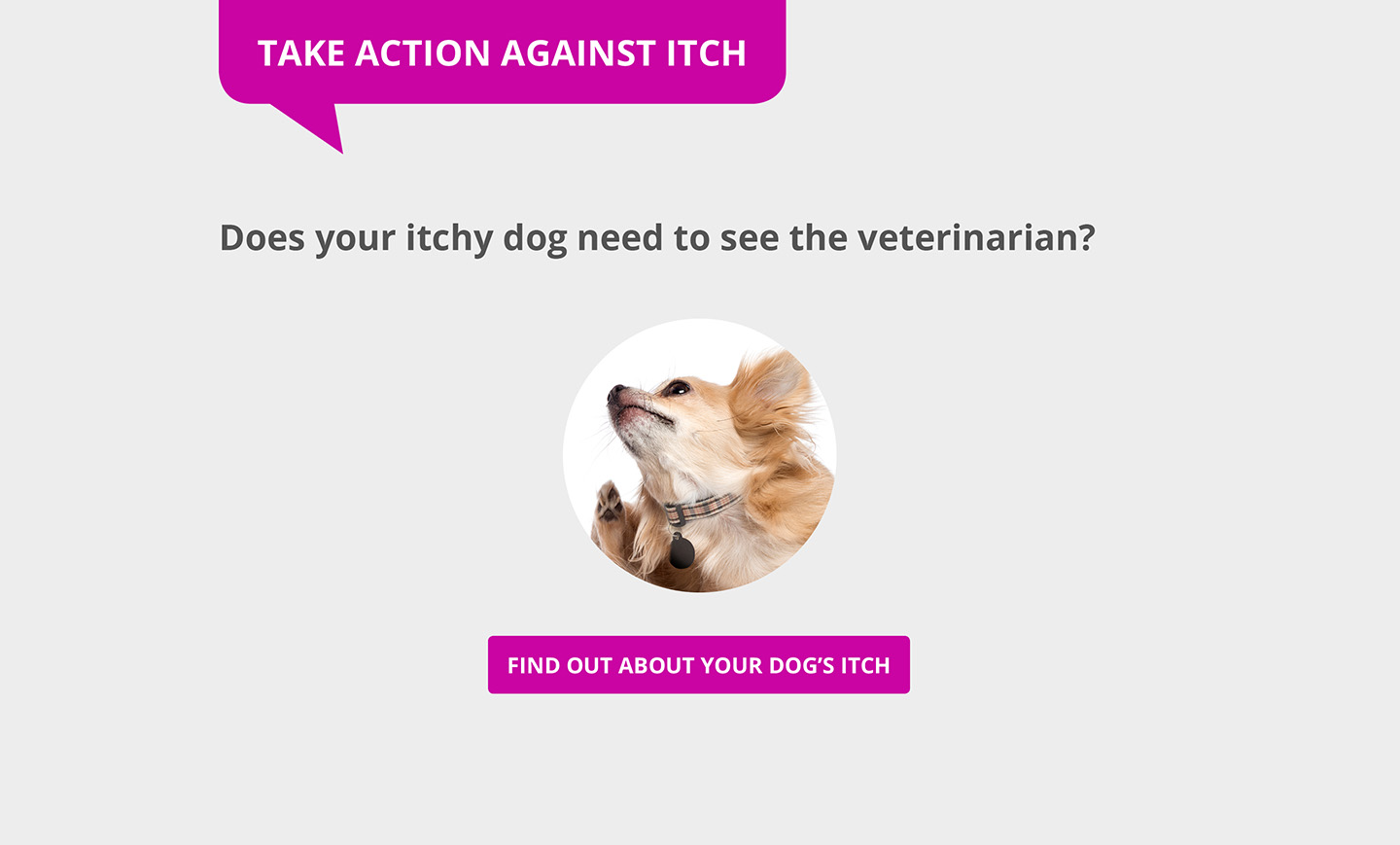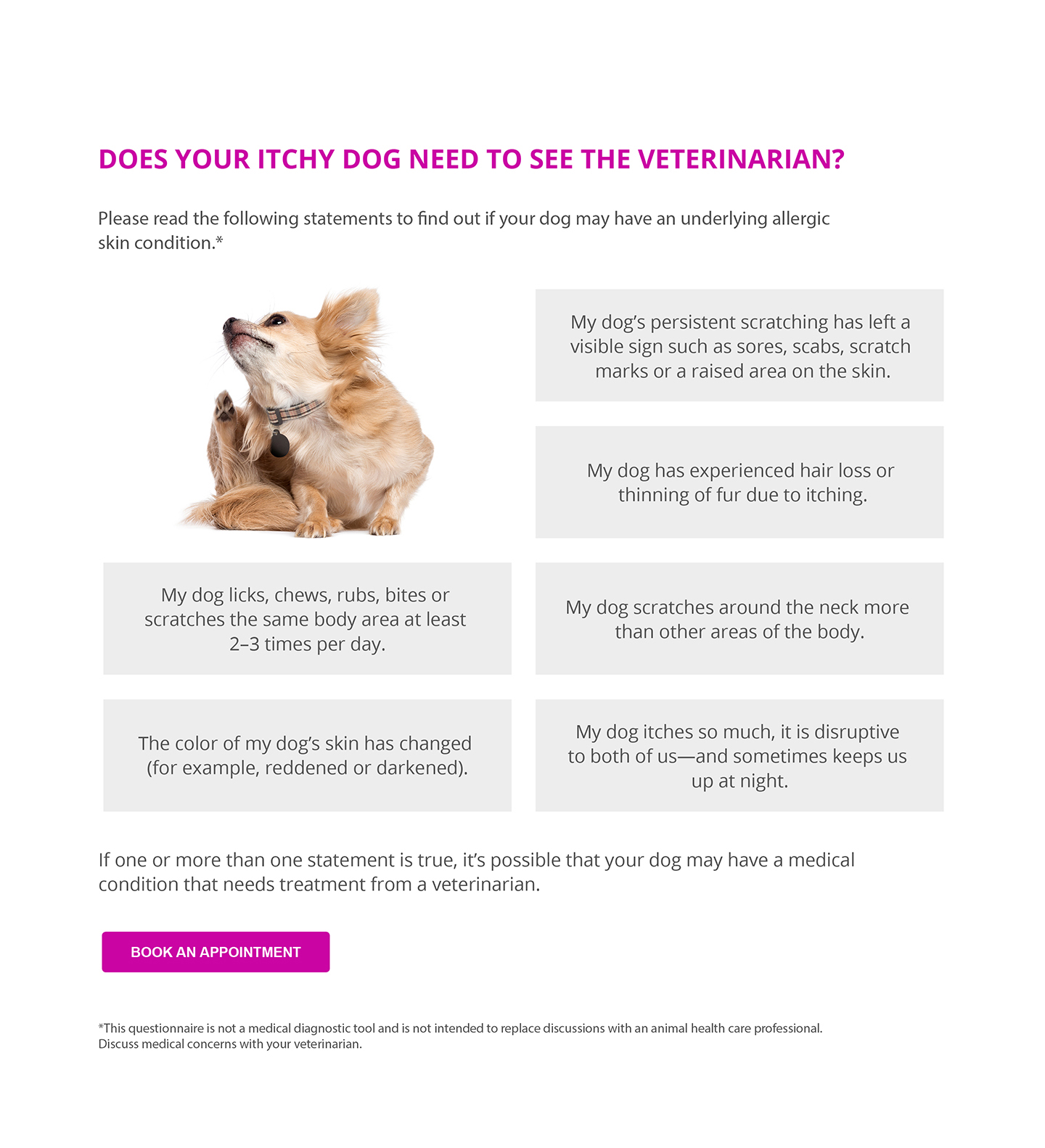WHAT ARE THE COMMON CAUSES OF YOUR PET'S ITCH?
Scratching or licking, scaly skin, thinning hair, ear problems and other skin-related issues can be the result of anything from flea bites and common allergens to food sensitivities.
Here are the most common causes affecting cats and dogs:










